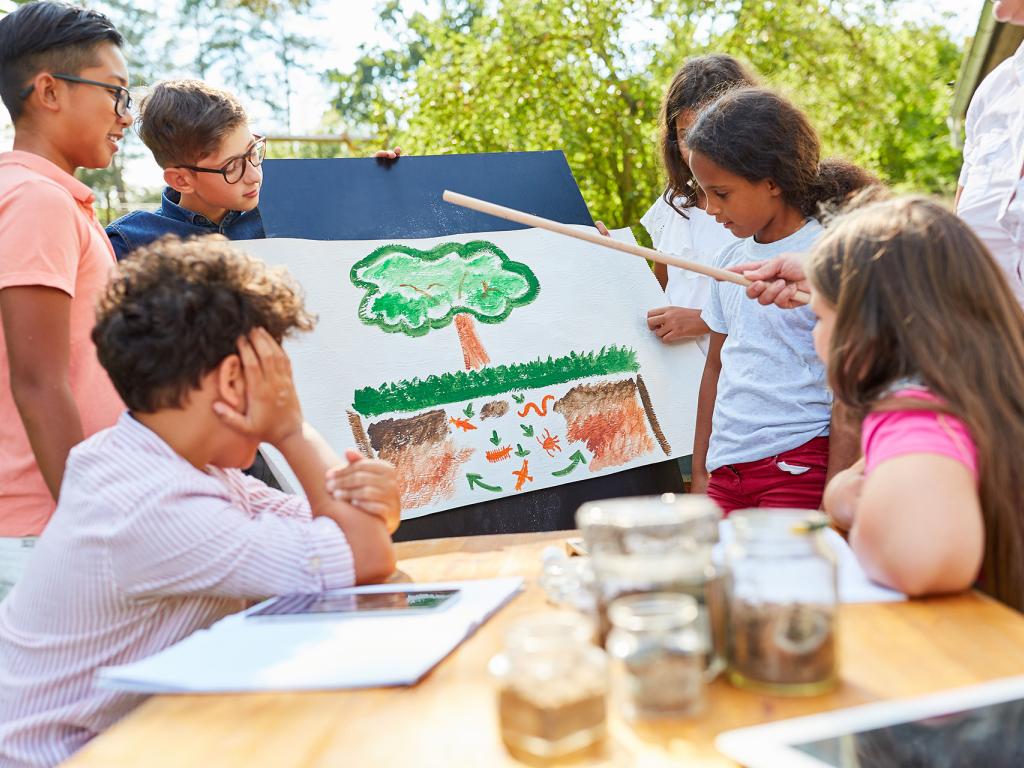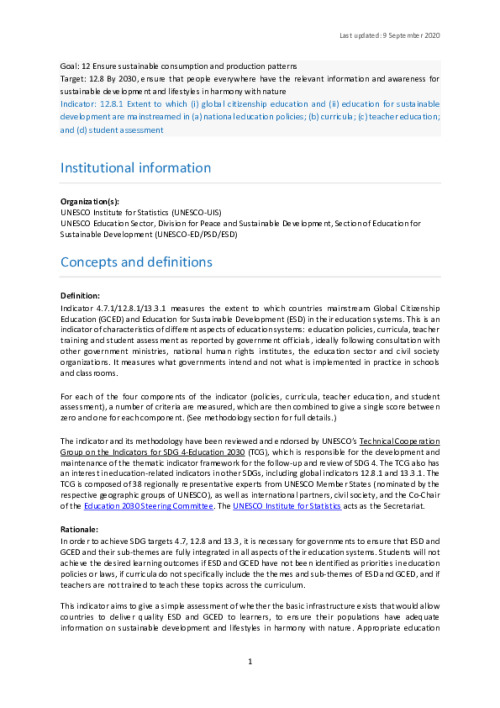
United Nations Educational, Scientific and Cultural Organization (UNESCO)
UNESCO is committed to educating the public about Sustainable Consumption and Production (SCP), directly contributing to indicator 12.8.1: “Extent to which (i) global citizenship education and (ii) education for sustainable development are mainstreamed in (a) national education policies; (b) curricula; (c) teacher education; and (d) student assessment”.
Without access to relevant information, knowledge and the skills necessary to act, individuals will not be able to adapt their behaviours in ways that are necessary to ensure that their lifestyles promote sustainable development and environmental protection. One means by which this can be achieved is through education.
Quality education contributes to reducing waste generation through the introduction and practice of the four 'Rs' - Reduce, Reuse, Recycle and Recover. Keeping the public informed and educated is crucial to promote sustainable lifestyles that ensure we live harmony with nature. The scientific and technological capacities, particularly of developing countries, can be strengthened through education efforts, thereby moving towards more sustainable patterns of consumption and production.
Indicator 12.8.1 measures the extent to which countries mainstream global citizenship education and education for sustainable development in their education systems. This is an indicator of characteristics of different aspects of education systems: education policies, curricula, teacher training and student assessment. It measures what governments intend and not necessarily what is implemented in practice in schools and classrooms.
The data required for the indicator are collected every four years as part of the regular monitoring of the implementation by UNESCO Member States of the 1974 Recommendation concerning Education for International Understanding, Co-operation and Peace, and Education relating to Human Rights and Fundamental Freedoms.



